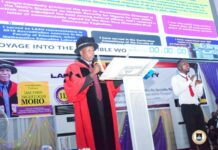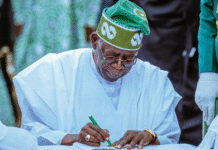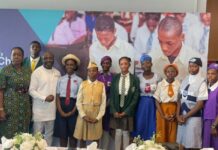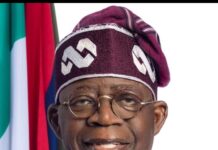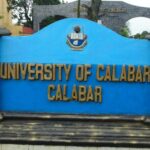For a long time, a wide gap has existed in the provision of quality basic and secondary education in Nigeria. The chasm was, unfortunately, widened by the COVID-19 pandemic, which disrupted learning for children, young people and adults at an unprecedented scale and magnified the pre-existing inequalities in accessing meaningful learning opportunities.
As the pandemic lasted, the need for the adoption of digital education rose to its peak as many schools employed technology and virtual means to reach out to their students. However, that was only for a few privileged students, as the majority, especially at the public schools, was left behind.
It is worth noting that with the increase in mobile devices and cheap high-speed internet which serve as platforms for many socio-economic technologies, the new educational technologies have yet to revolutionise most schools in the country. This has further led to a growing divide in accessing the vast opportunities that abound in this sector.
However, the federal government has developed a National Policy on Information and Communication Technologies (ICT) to provide the needed guidance on expectations from all stakeholders in the entire process of ICT integration in education.
According to the policy, its implementation should lead to a speedy transformation of teaching, learning, research and administration. Consequently, that will ensure that graduates at all levels of education possess the required competencies for socioeconomic development, global competitiveness and self-reliance.
Meanwhile, while some students, especially in private schools, are enjoying digital education with the equipment provided for them, some in public schools are yet to be reached.
A student, Yemi Julius, said they are only taught about computer parts; that only SSS 3 students are allowed to operate computers.
Speaking on the state of digital education in schools and the challenges, some stakeholders said Nigeria still has to do more. They note that the country has certainly recorded some progress, but that more needed to be done.
Experts speak
A teacher, Oluwabunmi Anani, winner of Maltina Teacher of the year 2020, said the government, through the Ministry of Education, has been paying lip service to the issue of digital literacy in the country, particularly in the area of teachers’ development.
She said aside from Lagos State, most states in the federation are not taking the needed steps in this regard.
“What is the quality of our teachers as far as digital literacy is concerned? Has any proactive measure been put in place to ensure every teacher is digitally receptive? Are smartphones and laptops provided at subsidised costs through the initiative of the ministry? Are digital devices part of the prizes awarded to teachers to enhance their delivery? she asked.
Oluwabunmi maintained that it should not just end in conferences, workshops, summits and seminars, saying, “We need a hands-on demonstration, backed with actual empowerment of the teachers.”
“Nongovernmental organisations are doing well, particularly in terms of incubating teachers for the development of digital skills. The snag, as pointed out earlier, is in the continuous and even empowerment of teachers. It should not be lopsided or half-hearted. What use is a computer when I cannot navigate my way seamlessly around it? What is the use of digital education when my learners cannot use, apply, or benefit from it owing to paucity of funds or ignorance? What is the use of digital education when teachers in remote and underserved communities cannot even afford a phone?”
According to her, for impact to be made, it should be done in areas that are in high need, and in ways that leave a real impact long after the empowerment has been done.
“I think the sensitisation should extend to our parents as well. The golden rule, however, is: don’t just tell them; more importantly, show them how,” she said.
While noting that teachers and children need a lot of encouragement and assistance, she said from the research conducted, more than 75 per cent of teachers, even in urban areas, cannot afford the simplest smartphone.
“Most are patching up their phones. To make matters worse, when gifted a good smartphone, they sell them to feed and attend to emergencies! The situation is that bad: a paucity of funds accentuated by ignorance about the usefulness of digital devices to their work as 21st-century teachers is a challenge,” the award-winning teacher noted.
The CEO/Chairman of Voyage International School, Abuja, Yussuff Oriyomi, said the adoption of digital education peaked during the coronavirus shutdown and that a number of schools, including his, stayed on hybrid education after COVID-19.
“We provide at least 10 per cent of our instructions using digital and virtual platforms. This will enable our students to adapt to the future of learning,” he said.
On the challenges, he said in Nigeria, the cost of acquisition of devices, reliable and speedy internet, and power supplies are some of the issues affecting digital education.
He, however, asked the government to support digital education by enhancing internet penetration and enhancing safe use of the internet by ensuring students only have access to age-appropriate content on the internet, as well as support educational institutions to acquire equipment and devices needed for digital education and of course support power supply among others.
Ms Sola Adeola, a school leader in Caleb Group of Schools, said digital education is the way to go in this century as it makes room for learners to learn the way they want to be taught, not forgetting the fact that the learners now are digital natives.
She said in Nigeria, some schools have embraced digital education, especially private schools, and “even some government schools aren’t left behind, but we still have a long way to go.”
Speaking on the challenges of attaining digital education in Nigeria, she said the first will be mentioning an element of digital citizenship, which is digital access.
“How many Nigerian students/pupils have access to a digital device and the internet? The average Nigerian student/pupil does not have access to a digital device or the internet so that poses a great challenge.
“Those that even have access suffer from high costs of internet subscription and poor networks across the country,” she said.
Others, according to her, are irregular power supply and also the challenge of students/pupils having all of these things but aren’t responsible digital citizens as well as a lack of professionals who can drive the implementation of digital education in the country.
Adeola, who noted that digital literacy is one of the soft skills every child must have to get ready for the future of work, said digital education will drive the skill among learners and teachers.
She suggested that government should provide the materials needed to achieve this great feat to all government schools, and professionals should embrace the change and be trained on how to teach using digital technologies.
She also said students/pupils should be taught digital citizenship in schools for them to become responsible digital citizens and their curriculum should be reviewed to accommodate digital education.
“Whether we like it or not, whether we are ready for it or not, digital education is the new norm and if we don’t drive it responsibly, our students/pupils will be left behind globally,” she said.
For Olasunkanmi Opeifa, an educationist, “It’s getting better, especially with the young breed of educators. The FCT, for instance, has adopted full digitization of lesson plans and results issuance. And so many other states are ‘catching the virus’ though slowly. With the emergence of artificial intelligence, the standard has shifted again, this time higher, but it’s still attainable.”
He also maintained that the challenges remain power, poorly skilled teachers, a lack of necessary gadgets, poor internet facilities, and willpower from the government.
Opeifa said: “I think it all rises and falls on the willingness of the government. Sincerely, it costs the government nothing to equip all our classrooms with the digital tools necessary for robust education.
“It just boils down to their priorities.” If our schools can be well equipped, then teachers will have no option but to improve themselves for relevance or quit out of frustration.”
He further said power generation is not a problem as such and that there are alternative power supplies that can help sustain the effective use of the tools.
FG’s efforts
The federal government launched the Nigeria Learning Passport (NLP), in collaboration with the United Nations Children’s Fund (UNICEF), and others, last year to boost digital education across the country.
Daily Trust reported that Vice President Yemi Osinbajo, speaking at the occasion, said deploying innovations that rethink the current methodologies, including new approaches to delivering education in ways that defy the digital divide, and ensure learning continuity in emergencies, has become imperative.
Osinbajo, who was represented by the Minister of State for Education, Chukwuemeka Nwajiuba, said: “This launch sets the foundation for creating a system of education where digital technology will be used to transform the way that learning is provided and meet the needs of every child.
“The NLP is an effective tool to ensure the continuity of learning through access to the curriculum,” he said.
Also, the Minister of Education, Malam Adamu Adamu, represented by the Acting Permanent Secretary, David Gende, said it is clear there is no going back on the education they had before the COVID-19 pandemic.
He said, “Digital learning has become a steady path on the backbone of learning and teaching the new skills that the young people need to participate effectively in a knowledge and increasingly technology-driven economy. We must do all that is needed to increase the quality.”
Meanwhile, the federal government, through the Universal Basic Education Commission (UBEC), has built 37 smart schools in 36 states of the federation and the Federal Capital Territory (FCT) to boost e-learning programmes in basic education.
According to the Head, the Public Relations Unit of UBEC, David Apeh, the schools are completed and equipped; teachers are also trained, and instructional materials have been supplied ahead of the commencement of the school which is expected to be soon.
Daily Trust





